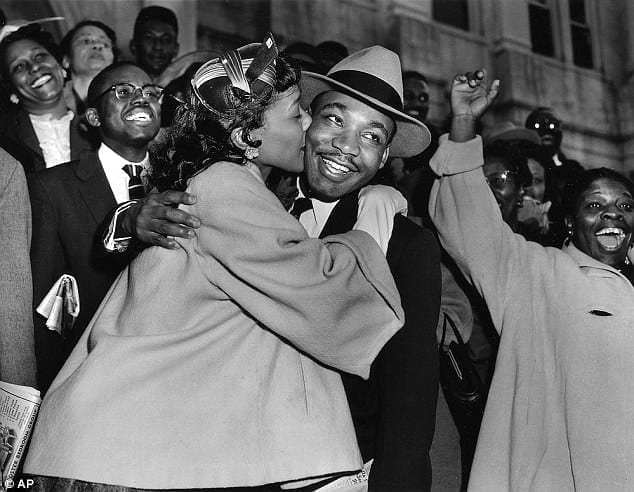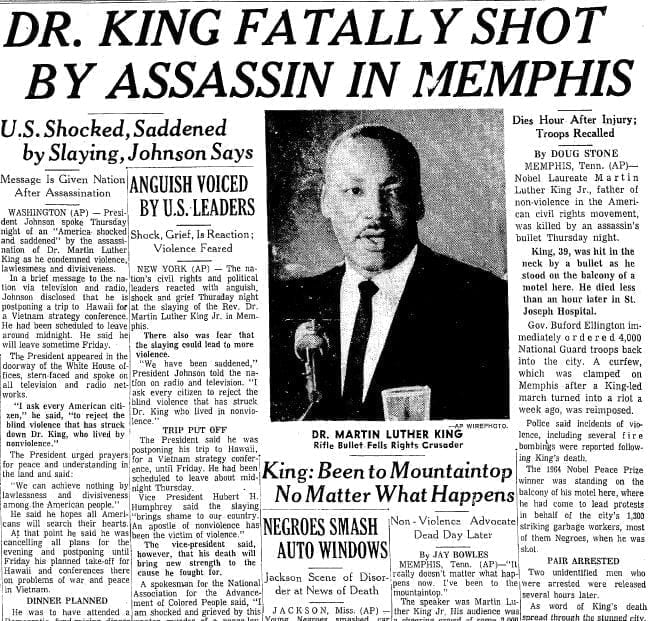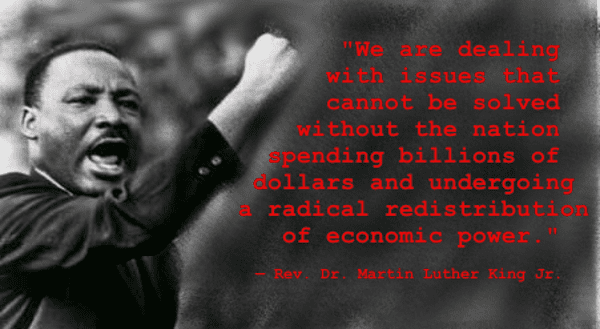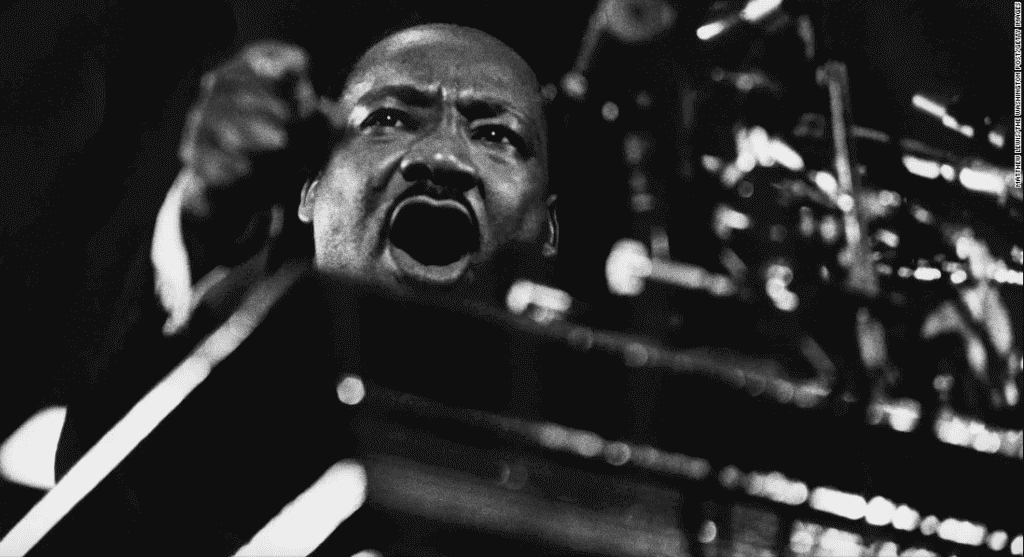In a letter to Coretta Scott during the summer of 1952, about a year before they would marry, Martin Luther King Jr. wooed her with his sentiments on economic principles following a few tender lines of poetry.
“I imagine you already know that I am much more socialistic in my economic theory than capitalistic,” he wrote. “And yet I am not so opposed to capitalism that I have failed to see its relative merits.”

Throughout his rise to prominence as one of the most influential and universally known civil rights leaders in history, economic justice would be an underlying pillar of his legacy.
However, his radical commitment to leveling economic inequality for all Americans, in addition to the work he did to advance civil and human rights, has been characterized as under-appreciated and is often overlooked in mainstream reflections of his greatest achievements.
In a 1998 PBS Frontline documentary entitled “Two Nations of Black America,” it is fascinating to study rarely seen video footage of Martin Luther King during the last two months of his life. In his later speeches, King had begun to acknowledge the lack of material gains brought on by the Civil Rights Movement in the way of improved conditions and quality of life for many African Americans.
In efforts to address the national statistics on poverty during the Johnson administration, with close to 30% of Americans living below the poverty line, in the early part of 1968 King and the Southern Christian Leadership Conference organized the Poor People’s March on Washington, more widely known as the Poor People’s Campaign.

This anti-poverty movement, which will commemorate fifty years by relaunching with plans of action this spring, demanded that Congress and executive agencies increase commitments to full employment, guaranteed annual incomes, and increased low-income housing for all Americans regardless of race, creed, or religion.
Dr. King openly critiqued the government’s failure and neglect of nearly a third of the country and his rhetoric was anything but the hand-holding, kumbaya sentiments of the 1963 “I Have a Dream” speech:

“At the very same time that America refused to give the Negro any land, through an act of Congress our government was giving away millions of acres of land in the West and the Midwest, which meant that it was willing to undergird its white peasants from Europe with an economic floor.
But not only did they give the land, they built land grant colleges with government money to teach them how to farm. Not only that, they provided county agents to further their expertise in farming. Not only that, they provided low interest rates in order that they could mechanize their farms.
Not only that, today many of these people are receiving millions of dollars in federal subsidies not to farm, and they are the very people telling the black man that he ought to lift himself by his own bootstraps. And this is what we are faced with, and this is the reality. Now, when we come to Washington in this campaign, WE ARE COMING TO GET OUR CHECK.”
 It’s no coincidence that Dr. King was assassinated during this tour for the economic empowerment of Blacks and others across the nation living in poverty.
It’s no coincidence that Dr. King was assassinated during this tour for the economic empowerment of Blacks and others across the nation living in poverty.
On the eve of that dark day in American history, while in Tennessee in support of the Memphis Sanitation Strike, Dr. King delivered his final searing speech, “I’ve Been To The Mountaintop.”

There is a different type of urgency in his eloquence as he encourages his Black audience to take full note of their collective buying power and to leverage the strategy of boycotting businesses with racist, discriminatory practices.
You can hear the love and welfare in his pleas to parishioners and constituents to make deliberate efforts in choosing to spend their dollars with Black owned and operated businesses over convenient, mainstream alternatives.

Listening to “Mountaintop” half a century after King’s assassination, and understanding the sheer relevance that it still holds today points to why we should absolutely pay more attention to MLK’s legacy of fighting for economic justice and freedom.
Particularly in the wake of the current administration’s egregious failures to the American people including tax bill reforms that favor the wealthy, threatening to obliterate the shrinking middle class. Dr. King was unapologetic when he said that “Freedom is never voluntarily given by the oppressor; it must be demanded by the oppressed.”
That includes the economic freedom that we need to build long term, generational wealth for Black families and communities across the globe.

As Dr. King’s focus shifted toward solutions to poverty and fair housing conditions in addition to social inequity, it’s imperative that we consciously shift our focus toward his contributions to progressive economic models by further support of Black-owned businesses.
– Contributed by Mai Perkins
Mai Perkins is Cali girl in a Bed Stuy world, with global bon vivant flair and the passport stamps to prove it. She currently works in archival documentary research for historical film and television projects. She’s earned an MFA in Creative Writing from Sarah Lawrence College and an MA in International Affairs from The New School with a concentration in Media & Culture, but reps her beloved alma mater Howard University every chance she gets. As a poet and a creative non-fiction writer, she has published her first manuscript entitled The Walking Nerve-Ending, which is available on Amazon. She is @FlyMai16 on Twitter/IG.


